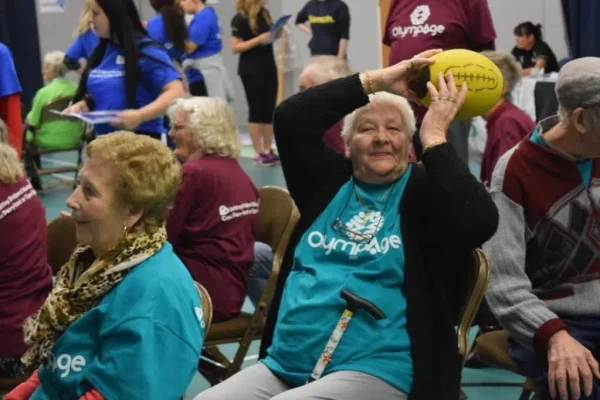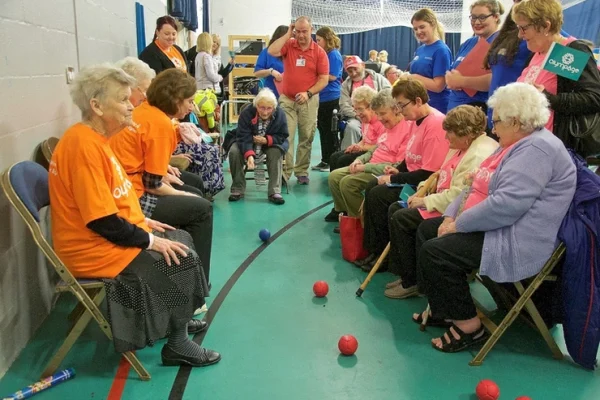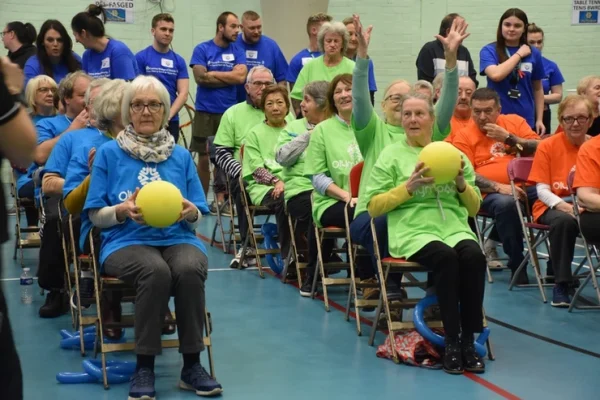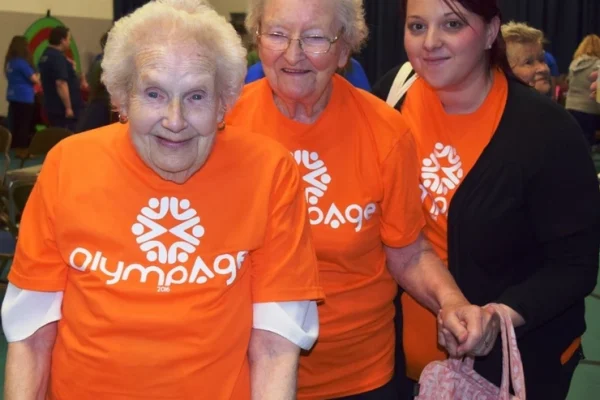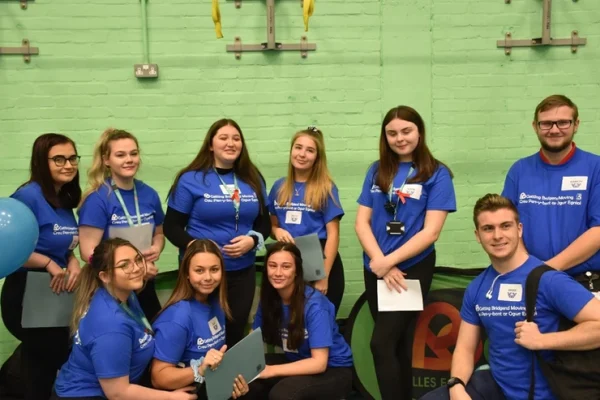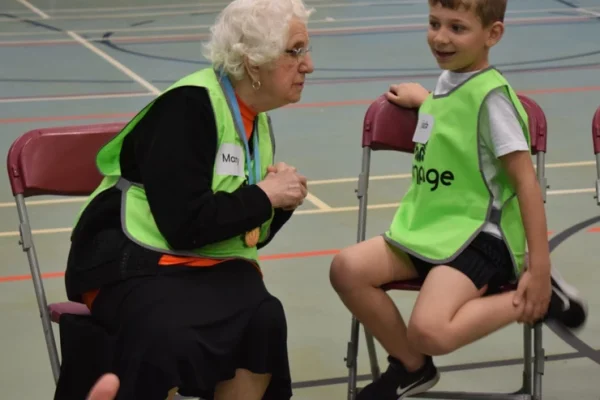Andrew Thomas (Bridgend County Borough Council)
Bridgend County Borough Council with partners, Cwm Taf Morgannwg University Health Board, Rhondda Cynon Taf CBC, Merthyr Tydfil CBC, Public Health Wales, Bridgend Association of Voluntary Organisations, Halo Leisure, Awen Trust and Merthyr Leisure Trust
Background:
The Super-Agers project aims to increase physical activity opportunities for older adults via a regional partnership approach across the Cwm Taf Morgannwg health board footprint. Super-Agers aims to co-produce supportive community activities with older adults with a focus on maintaining independence in communities. The project has been successful in securing 400k of Healthy and Active fund investment over 3 years including a national focus on evaluating improvements to physical and mental wellbeing. This has seen connections to integrated care and transformation projects.
The strategic case identified a projected 27% increase in the ageing population of Wales by 2039 and a 22% increase in adults living with a chronic condition, whose lives might be improved by increased physical and social opportunities. The business case identified more cost-effectiveness via a regional collaborative approach including local authorities, public health and the third sector. It identified an ambition of “empowering” older adults to own and sustain a range of community activities and social prescribing opportunities. The financial case has projected that building resilience by improving the skills, knowledge and confidence of volunteers and enhancing third sector and community groups may be a prudent investment and reduce the need for day services or home care support.
The Super-Agers logic model has targeted a series of Future Generations outcomes including healthy lifestyle behaviours, ability to influence local decisions, ability to access services needed, volunteering rates, reducing loneliness and supporting good mental wellbeing scores. Super-Agers has been connecting with other prevention programmes to identify how to best capture impact in a range of ways.
Project Aims:
The key focus has been on developing an approach to capture the impact of preventative interventions on population wellbeing.
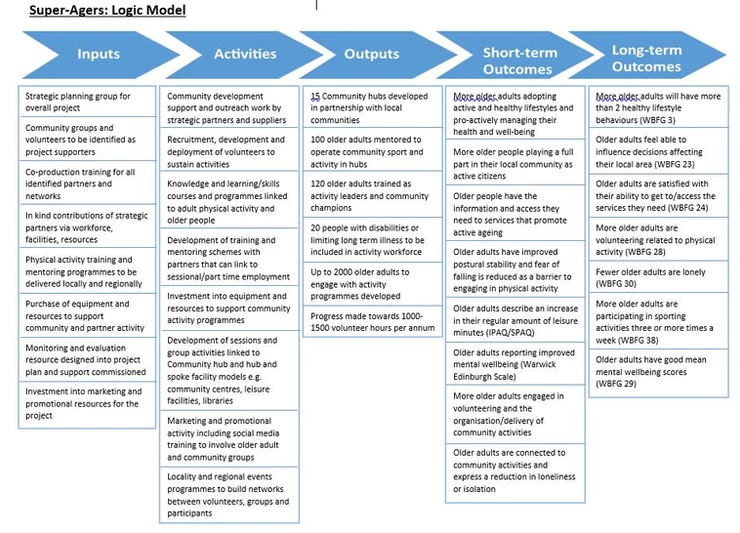
Challenges:
Mobilising a regional programme of this kind has needed to ensure flexibility for partners to respond to local circumstances. The national evaluation approaches have not always been effective for the demographic group and other qualitative approaches have needed to be used. A programme that is targeting population groups that have been hard to engage needs to be sensitive and proportionate in its evaluation approaches to retain their participation.
Following the national Covid-19 lockdown, alternative ‘Active@Home’ approaches have been developed including resource packs, activity books and telephone mentoring.
Digital exclusion has been a challenge that remains although co-operative approaches are being developed.
Key Outcomes:
Super-Agers has proven a demand with 239 older adults engaging in this co-produced intervention in 12 locations, supported by 70 social care students.
An inter-generational approach designed to support Age Friendly Communities has highlighted the value of using social prescribing opportunities to bring communities together.
By connecting these opportunities to other support such as local community co-ordination it is possible to build resilience and reduce managed care needs.
Alternative “Active at Home” approaches were required to support 124 people with resources including physical activity challenges and subsequently telephone mentoring support. (See the home support pack below).
- 23% raised physical activity levels and 54% raised their MET scores. IPAQ
- 68% improved mental wellbeing scores. WEMWBS,
- 100% felt that Super-Agers had increased their sense of wellbeing.
Positive feedback:
“Love being part of a group again and I am motivated to do more if possible”
“These sessions make me happy and they make me come out of the house”
- A likely Social Return On Investment (SROI) of 4:1
- Potential reductions in costs of social worker interventions (£59p/h), G.P. consultations (£125 p/h), A and E attendance costs (£117 per visit) and mental health support (£167 per meeting) could be achieved.
- Output data indicates demand by older adults for community based social prescribing opportunities.
- Support tools used indicate improved wellbeing gains for participants.
Case Study:
Mrs D is in her early 70s and lives alone, she is partially sighted and despite being able to navigate her local area she is limited to days when it is not too bright. Click below to read about how Super-Agers has supported Mrs D.
Next Steps:
The initial prevention-focused “balanced scorecard” that was created can be further developed, particularly in regards to cost avoidance, cost reduction or supporting demand management for health and social care partners.
Super-Agers will need to formalise how it aims to further capture its impact as an example of preventative work that de-escalates some needs over a 2 year period of delivery.
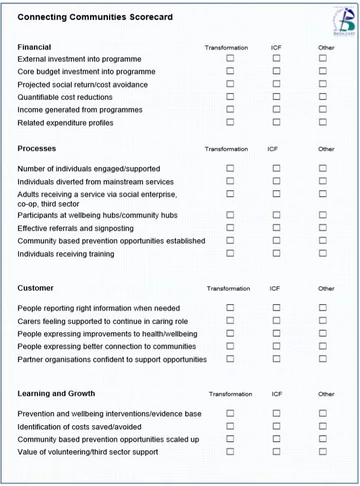
A KESS partnership has been established with Swansea University to explore the ‘empowerment’ of older adults and an additional SROI study will progress over the next 18 months
The programme delivery will need to respond to national restrictions and reduced public confidence.
My Exemplar Experience:
The experience has reinforced my belief in the importance of preventative work and the need for cross sector collaborative working. Being able to connect more broadly with health and social care professionals has added depth to understanding of challenges, including the need to rebuild communities post-Covid-19.
Showcase:
Contact:
Andrew Thomas: andrew.r.thomas@bridgend.gov.uk

